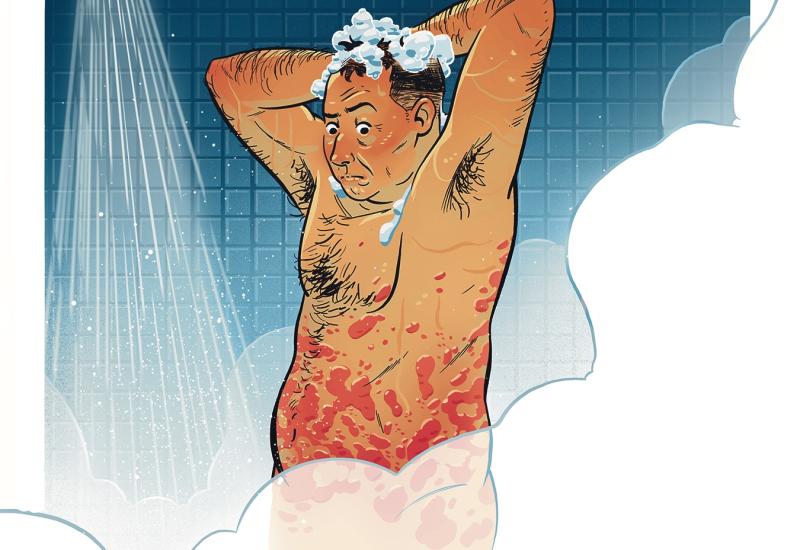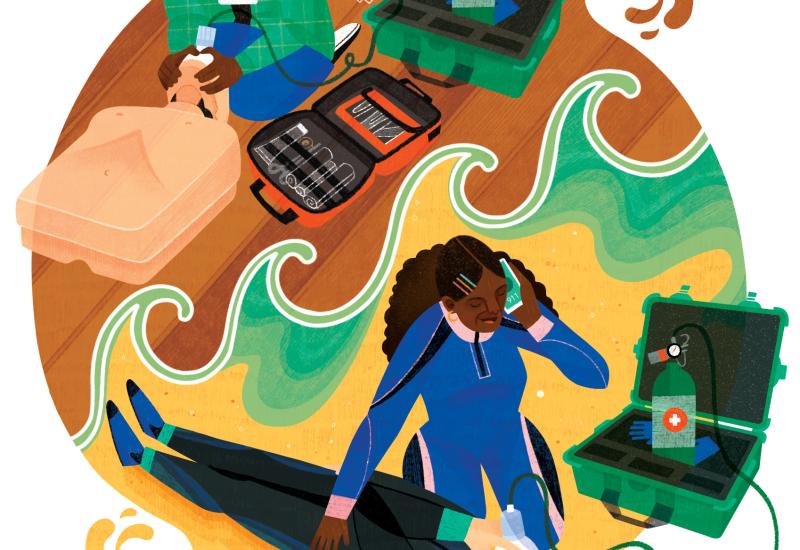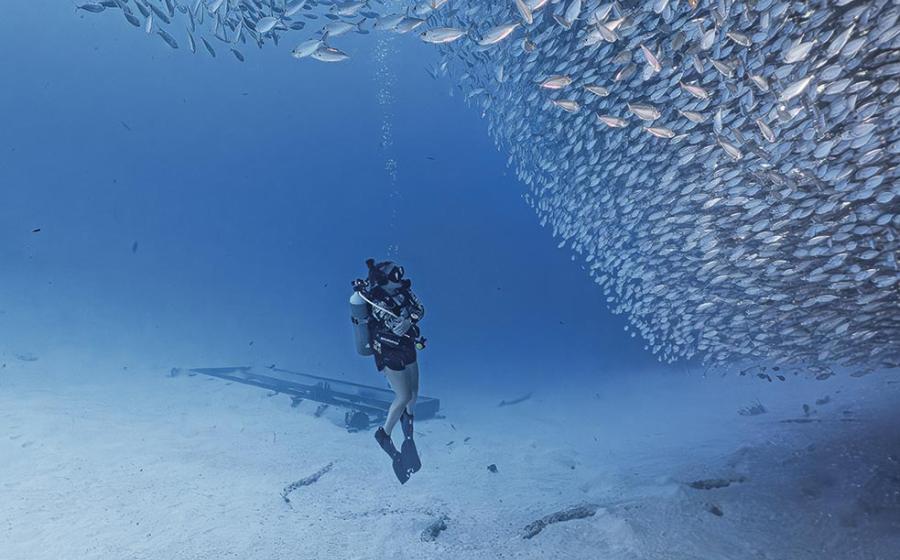ASK DAN: How Can I Minimize My Decompression Stress?

Courtesy of DANMany factors can make a diver more vulnerable to decompression sickness (DCS).
Numerous factors contribute to a diver’s susceptibility to decompression sickness (DCS). The effect of these factors is known as decompression stress. The most significant risk factor is the diver’s exposure profile: the time, depth and ascent rates of the dives. Even in situations in which all other factors lead to increased decompression stress, if the dive profile does not generate significant decompression stress, DCS will not develop.
EXERTION
The timing and intensity of exercise during and after a dive can substantially affect your risk of DCS. A high workload during the descent and bottom phase of a dive will increase your inert gas uptake, effectively increasing decompression stress. High-impact exertion near the end of, or immediately after, a dive can stimulate bubble formation. Keep your exercise intensity as low as possible during the bottom phase of a dive.
Mild exercise is appropriate during the ascent phase of the dive. Avoid exercise that puts significant stress on the joints, such as running, for 12 to 24 hours after a dive. If you cannot avoid post-dive exercise, keep your dive profiles very conservative to minimize your overall risk.
THERMAL STRESS
During the descent and bottom phase of a dive, a relatively warm state results in increased inert gas uptake. During the ascent phase of your dive, a relatively warm state will promote inert gas elimination, thus reducing overall decompression stress.
On the other hand, a cool or cold state during this phase will reduce inert gas elimination, effectively prolonging and possibly increasing decompression stress.
FITNESS
Poor medical and physical fitness can compromise your safety in general and may increase your risk of DCS. Definitive data are limited, but there is no question that it is prudent to maintain a high level of physical fitness and to dive more conservatively as your fitness level declines. Safe diving is possible throughout much of a normal lifespan, but it is important for all divers to seek regular, objective evaluation of their capabilities and to adapt their diving practices accordingly.
HYDRATION
Dehydration gets a substantial amount of attention among divers as a risk factor for DCS—probably more than is warranted. Sound hydration is important for good health, but your dive profile, thermal stress and exertion level are far more important risk factors for DCS. The undue focus on dehydration is probably a result of human nature and the understandable desire to assign blame for a capricious condition.
DCS is fickle. A diver may adhere to a similar dive profile many times without incident but then develop DCS while following the very same profile. It is comforting to try and identify a single causal agent, even if this is more wishful than factual.
ADDITIONAL FACTORS
A host of other factors may contribute to a given individual’s risk of DCS. Some probably play minor roles, and some potentially play important roles that have not yet been fully defined.
Nutritional status, for example, plays a major role in one’s general health and often in one’s physical fitness too. While research on the connection between nutrition and diving is limited, it is possible that nutrition also affects decompression safety. For example, one study assessed the relationship between cholesterol levels and decompression-induced bubbles. A Doppler ultrasound was used to classify the 30 subjects as either “bubble-prone” or “bubble-resistant.” Among the study’s findings was that, on average, bubble-prone subjects had higher total blood cholesterol levels than the bubble-resistant subjects. Additional research into this and many other areas is needed.
DCS history An individual’s history of DCS may indicate a greater predisposition, either physiologically or behaviorally.
Sex There is little evidence in the diving medicine literature that sex plays a role in the development of DCS. Even if women do have a slightly elevated risk, as is suggested in the aviation medicine literature, it is possible that making safer choices regarding diving practices can compensate for any slightly elevated physiological susceptibility.
Age Advancing age is sometimes suggested to increase DCS risk, but it may simply reflect typical patterns of diminished physical and medical fitness.
Most personal factors that affect decompression stress can be modified. Maintaining reasonable levels of physical fitness, nutrition, restfulness and hydration contributes to good general and diving health.
Good health can reduce physical limitations and the need for medication. Being conscious of conditions that may alter risk can make it easier to build in appropriate buffers to promote safety.
Small changes toward conservatism, when applied across various factors, can enhance safety with little impact on what can be accomplished during a dive.
HERE FOR YOU
For as little as $40 per year for an individual or $60 per year for a family, DAN takes the guesswork out of emergency logistics. Once a member calls the 24/7 hotline, DAN arranges whatever care is needed—including evacuations and complex air travel arrangements if necessary. With more than 40 years of experience managing emergencies around the globe, DAN helps ensure you get to fully enjoy your diving and travel.
Learn more or join today at DAN.org.










